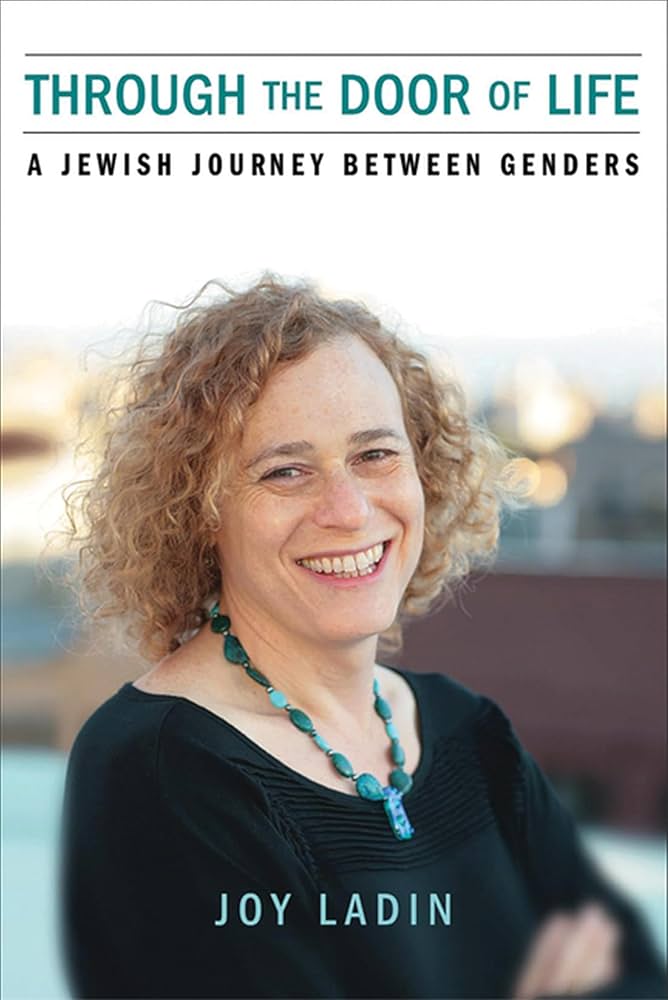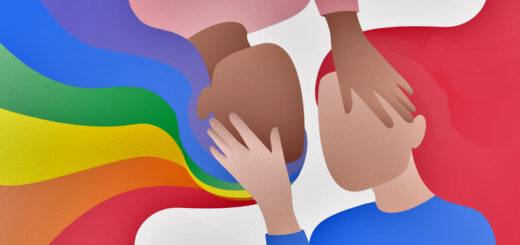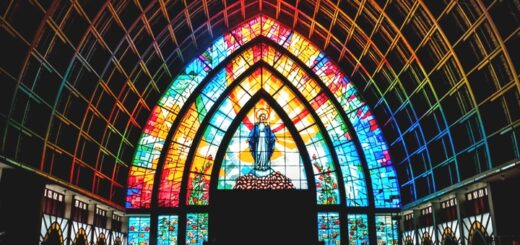Through the door of life. My prayer of blessing for my transition

Text by Joy Ladin* Extract from his book Through The Door of Life: A Jewish Journey Beteween Genders (Through the door of life: a Jewish journey between genres), University of Wisconsin Press (United States), 2012, pp.3-5. Freely translated by the volunteers of the Gionata project
Every day I recite a Jewish blessing for drugs I take (for my transition) and is:
«Benedict you are you, Lord our God, who have kept us alive, you preserved us and made us reach at this moment".
This blessing is traditionally pronounced at the beginning of the holidays, when you taste a new fruit or on any joyful occasion in which Jewish people want to increase their sense of gratitude, becoming more aware of the uniqueness of the instant and fragility of life than He led us so far.
It is not said when taking drugs. Indeed, it should not be recited for daily events, to which specific blessings are reserved, and is never pronounced for a disease.
The drugs I take - progesterone tablets that swallow whole and sweet estrogen tablets that let me dissolve under the language - are synthetic versions of those powerful hormones that, in a natural way, define and regulate many of the physiological characteristics typical of a female body.
I don't have a normal female body. I was born without the ability to produce more than insignificant traces of female hormones, and for decades my body instead produced testosterone, masculinizing my face, bones, muscles, hair and skin.
There are a few aspects of my physicality that testosterone has not transformed. Yet thanks to drugs, these effects are starting to vanish. For the first time in my life, when I look at myself in a mirror, I see someone who is starting to look like me.
I never thought I could see me in a mirror. I would never have thought of tightening the tool to become myself in my hands, to feel the flavor while melting under my language.
Every day that I take these drugs brings me very slowly - slowly, because the change is immense and my body, after so many years, is reluctant - to be the person I always have, paradoxically, desired to become and that I have always learned of being.
In a phase of life - the middle age - when many people begin to deal with mortality, I am living a rebirth. Or, at least, a second adolescence.
Perhaps it is right, since I spent most of my existence as a ghost, trapped in a body that did not belong to me. Instead of reflecting my identity, my body canceled it, showing that I didn't exist, that I could not exist.
Now, every day, my body and I get closer and more to a real mutual belonging.
This transformation goes beyond the body. While my body learns to metabolize and distribute fat according to female rather than male schemes, I am learning to live.
The securities accumulated in more than forty -five years, the ease, the automatic habits of everyday life - everything has vanished. I am devoured by the insecurities typical of adolescence: shy, clumsy, always on the verge of the appropriate, a vortex of emotions and desires, fears and excitement.
The first time I lived these moments of growth and formation of identity I was a girl, then a teenager, too young and too immersed in the painful processes of becoming to recognize them as miracles.
I observed them in my children, but I would never have imagined - I had lost hope, and perhaps I was too naive to be afraid of it - that one day I would find myself looking at me as I learn again to walk and speak, to greet adults, to Order in restaurants, to choose clothes, to make friendships.
Everything has returned to being new.
Going to work, taking the subway, making a work phone call -experience has become an adventure: uncomfortable, unpredictable, full of emotions and discoveries.
But this rebirth is only the beginning of the blessings that my disease has brought me.
When I hid in the shell of my body before the therapy - a body that was monstrous for me, but that in the eyes of others appeared normal - I felt extraneous to the human species, a painfully beautiful species and, at the same time, strangely inaccessible, formed, from creatures that belonged to each other.
I loved humanity from afar, with passion but without power, giving little of me, because I didn't have a real self to offer.
And, in all honesty, what I could know about love, when my every gesture and word were born from the assumption that I would be refused instantly by anyone who had glimpsed, through the shell of my masculinity, the misunderstood and unexpressed creature that agitated inside of me?
My self was made of fears and lies, a automatic, reflected cowardice refined since childhood.
If love is based on authenticity, I was unable to, because I had never lived a single day, a single instant, like myself.
And so it was a profound shock to discover, just at the moment of my maximum vulnerability, to be surrounded by love.
Now that I have shown myself to the people around me -as the same people from whom I had always hidden -I have received, again and again, compassion, acceptance, tenderness, a generosity of mind that seems to have no limits.
Some have embodied my worst nightmares of waste.
But the predominant experience was to find me surrounded by extraordinary human beings, the most loving I could imagine.
And since I am again in that uncomfortable age where every discovery brings new insecurities, new challenges, new chances of bankruptcy with them, I feel small next to these adult people, for which to love and donate are as inevitable as to breathe.
Is it too late to learn to follow their example?
It is certainly too late to ask me this question, but it is still too early to answer.
I just know I'm full of love. Too much love. A love that pushes against the narrow borders in which I have always lived.
Perhaps this is the greatest gift of all. What will I ever do with all this love?
Every day I approach the person who not only can, but must answer.
And so, every day, while I take the drugs that make all this possible, I recite the blessing that celebrates the amazement and privilege of existence, the fear and responsibility for becoming:
"Baruch Atah Adoshem, Elokeinu Melech Ha-Just, Shehechiyanu, V'kiyemanu, V'Higeyanu, La-Zman Ha-Zeh. "
* Joy Ladin is an American poet and essayist, known for having been the first openly transgender teacher in an Orthodox Jewish institution. He has published twelve books, including the autobiography "Through the Door of Life: A Jewish Journey Beteween Genders" (2012) and "The Soul of the Stranger: Reading God and Torah from Acturender Perspective" (2018). His works explore issues related to gender identity and spirituality, offering a unique perspective that combines personal experience and literary analysis.
Original text: A Blessing Spring 2007






